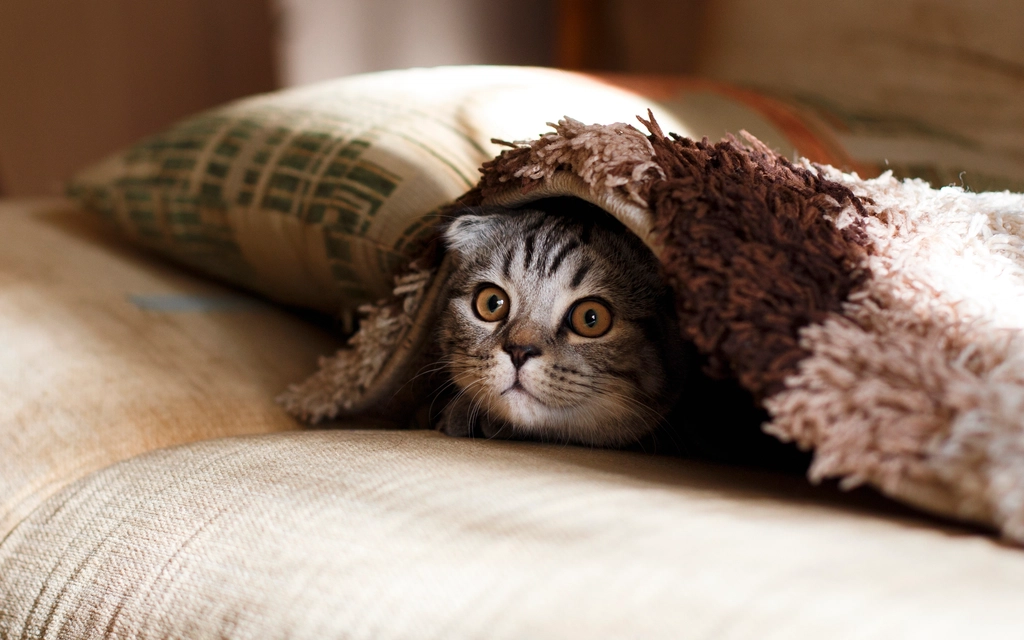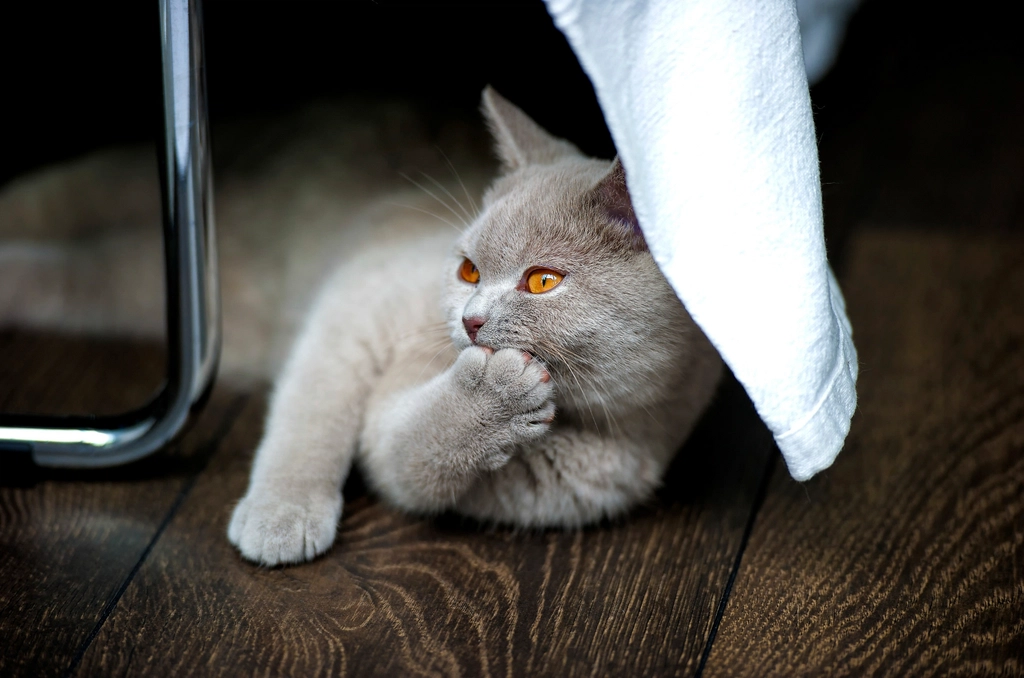Have you ever wondered why your cat suddenly stops doing certain quirky things? Cats are mysterious creatures, often leaving their human companions puzzled by their behaviors. But what if I told you that some of these habits vanish when your feline friend feels emotionally secure? This revelation might surprise you, but understanding it can deepen the bond you share with your beloved pet. Let’s explore the fascinating world of cat behavior and uncover the ten habits that disappear when your cat feels truly safe and loved.
Constant Hiding

Cats are known for their love of hiding, especially when they are stressed or anxious. It’s like their way of hitting the “pause” button on life. When a cat feels emotionally secure, you’ll notice them spending less time tucked away in secret nooks and crannies. Instead, they’ll be more likely to lounge in common areas where they can be part of the household action. Think of it as a shy friend who finally feels comfortable enough to join the party. This change in behavior is a clear sign that your cat trusts its environment and the people in it.
Over-Grooming

Over-grooming is a common habit in cats dealing with stress or anxiety. It’s their way of self-soothing, but it can lead to bald patches or skin irritations. When a cat feels emotionally secure, this behavior often diminishes. They become more relaxed and less compulsive about keeping every inch of fur perfectly in place. Like humans who stop biting their nails when they’re less stressed, cats also show their emotional state through grooming habits. A cat that grooms normally is one that feels safe and content.
Nighttime Restlessness
Cats are naturally nocturnal, but excessive nighttime activity can be a sign of insecurity. If your cat is constantly meowing or running around at night, it may be feeling anxious. Once they feel secure, you’ll notice a shift towards a more restful night. They might even start snuggling up with you, enjoying the comfort of your presence. This change is akin to a child who sleeps better when they know their parents are nearby. A calm, quiet night means your cat feels at peace.
Food Hoarding
Some cats have the quirky habit of hoarding food, hiding it in various places around the house. This behavior is often rooted in insecurity, a leftover instinct from their wild ancestors who needed to ensure a steady food supply. When a cat feels emotionally secure, this habit tends to fade away. They begin to trust that food will be available when they need it, similar to how a person might stop stockpiling supplies once they feel confident in their resources. A cat that eats in a relaxed manner is a happy cat.
Excessive Vocalization
Cats communicate through a variety of vocalizations, but excessive meowing can indicate stress or a need for reassurance. When a cat feels emotionally secure, you’ll notice a reduction in this behavior. They no longer feel the need to constantly seek attention or comfort through their voice. It’s like when a friend finally feels heard and understood, they talk less and listen more. A cat that purrs contentedly instead of meowing incessantly is expressing its comfort and security.
Territorial Marking
Marking territory with urine is a way for cats to assert control over their environment, often due to insecurity. This habit can be frustrating for cat owners, but it usually diminishes when a cat feels safe and confident. An emotionally secure cat feels no need to mark its territory because it knows it already belongs. Imagine a person who stops locking every door in the house once they feel safe in their neighborhood. A cat that uses the litter box faithfully is one that feels at home.
Aggressive Play
Kittens often engage in aggressive play as a way to learn important life skills, but in adult cats, it can be a sign of stress or insecurity. When a cat feels emotionally secure, play becomes more gentle and cooperative. They no longer feel the need to assert dominance or defend themselves during playtime. This shift is similar to a child who plays more peacefully when they feel loved and accepted. A cat that plays nicely is one that feels secure in its relationships.
Destructive Scratching
Scratching is a natural behavior for cats, but when it becomes destructive, it may indicate stress or insecurity. Cats that feel emotionally secure tend to scratch less destructively, focusing on designated scratching posts instead of furniture or walls. This change is like a person who stops fidgeting when they feel calm and focused. A cat that respects its surroundings is one that feels comfortable and confident.
Fear of Strangers
Many cats are naturally wary of strangers, but excessive fear can be a sign of insecurity. When a cat feels emotionally secure, it becomes more open and curious about new people. They may still be cautious, but they’re less likely to run and hide at the first sign of a visitor. This transformation is similar to a person who becomes more sociable once they gain confidence. A cat that approaches strangers with curiosity is one that feels safe in its environment.
Obsessive Litter Box Use
Frequent trips to the litter box can indicate stress or insecurity in cats. When a cat feels emotionally secure, their litter box habits become more regular and less obsessive. They no longer feel the need to constantly check or mark their territory. This change is akin to a person who stops checking the locks on their doors once they feel safe at home. A cat with regular litter box habits is a cat at ease.
Understanding these disappearing habits is key to ensuring your cat’s emotional well-being. When your feline friend feels secure, they reveal their true, relaxed nature, making them even more delightful companions. So, next time your cat stops doing something quirky, take it as a sign of their growing confidence and happiness. Isn’t it amazing how much our furry friends communicate through their behaviors?

Linnea is a born and bred Swede but spends as much time as possible in Cape Town, South Africa. This is mainly due to Cape Town’s extraordinary scenery, wildlife, and atmosphere (in other words, because Cape Town is heaven on earth.) That being said, Sweden’s majestic forests forever hold a special place in her heart. Linnea spends as much time as she can close to the ocean collecting sea shells or in the park admiring puppies.






